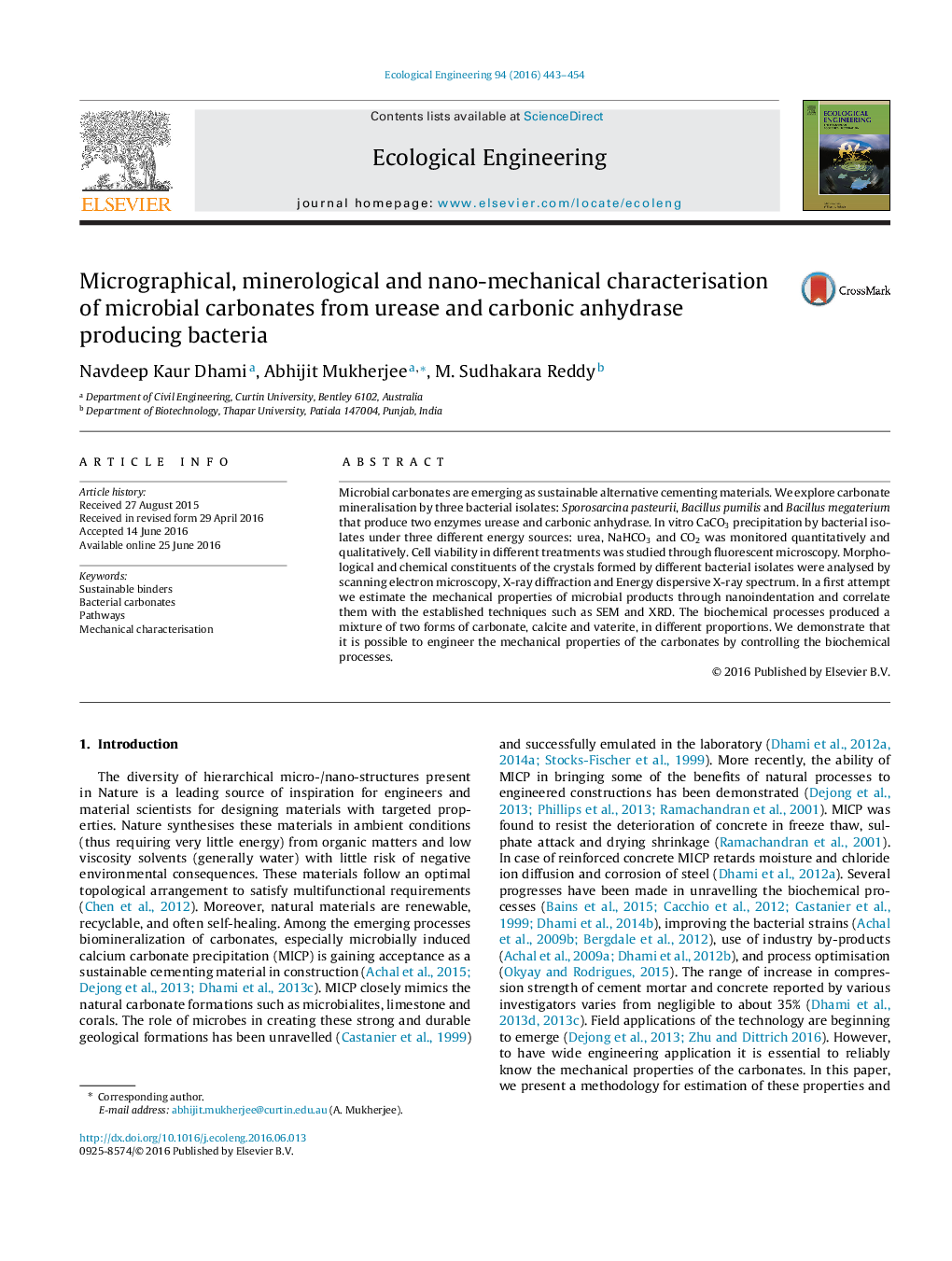| Article ID | Journal | Published Year | Pages | File Type |
|---|---|---|---|---|
| 4388571 | Ecological Engineering | 2016 | 12 Pages |
Microbial carbonates are emerging as sustainable alternative cementing materials. We explore carbonate mineralisation by three bacterial isolates: Sporosarcina pasteurii, Bacillus pumilis and Bacillus megaterium that produce two enzymes urease and carbonic anhydrase. In vitro CaCO3 precipitation by bacterial isolates under three different energy sources: urea, NaHCO3 and CO2 was monitored quantitatively and qualitatively. Cell viability in different treatments was studied through fluorescent microscopy. Morphological and chemical constituents of the crystals formed by different bacterial isolates were analysed by scanning electron microscopy, X-ray diffraction and Energy dispersive X-ray spectrum. In a first attempt we estimate the mechanical properties of microbial products through nanoindentation and correlate them with the established techniques such as SEM and XRD. The biochemical processes produced a mixture of two forms of carbonate, calcite and vaterite, in different proportions. We demonstrate that it is possible to engineer the mechanical properties of the carbonates by controlling the biochemical processes.
Graphical abstractFigure optionsDownload full-size imageDownload as PowerPoint slide
